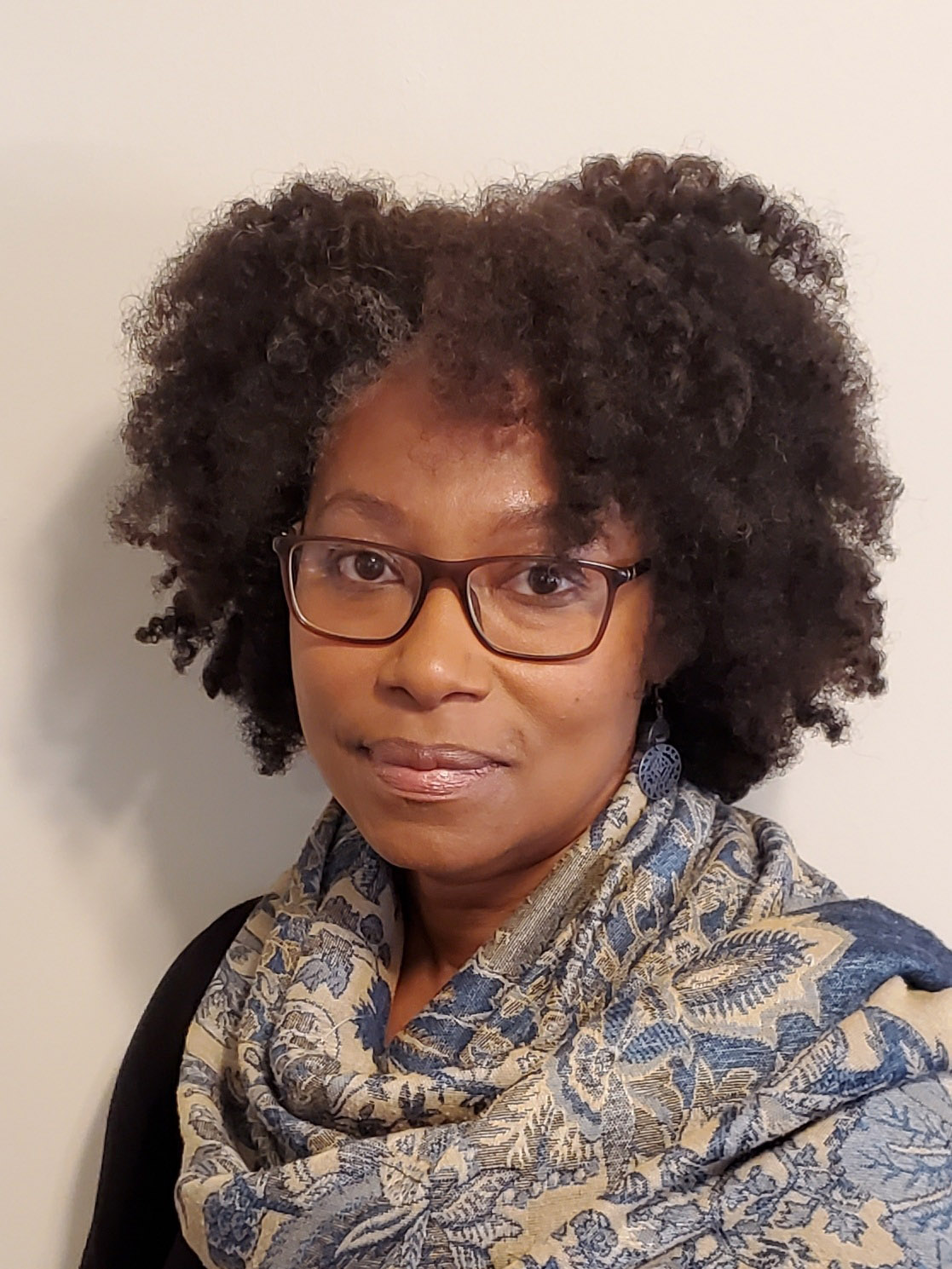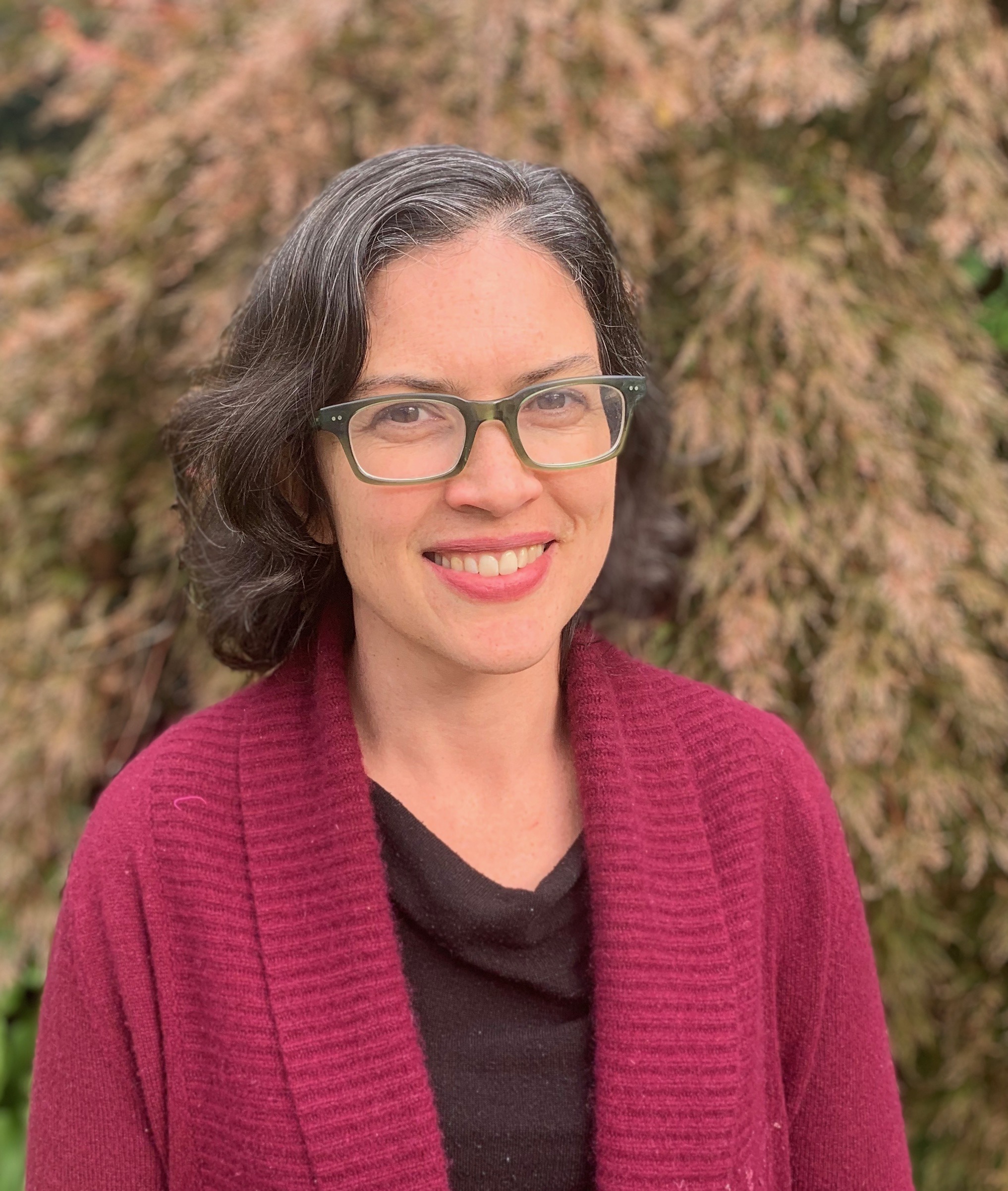ELSI Fellows
Recent Fellows
 Drew Blasco- Postdoctoral Fellow 2021-2023
Drew Blasco- Postdoctoral Fellow 2021-2023
Before earning her doctorate, Drew Blasco earned a master’s degree in Global Health from Arizona State University. Afterward, she received her PhD in Public Health at New York University, focusing on stigma related to mental health problems. During her doctoral studies, she researched genetic risk for psychosis development via genetic testing for individuals identified as clinically high-risk and the implications of such testing and risk labeling.
During her ELSI fellowship, Dr. Blasco extended this work to genetic testing for Alzheimer’s disease and other later-life neuropsychiatric conditions, mentored by Dr. Roberts and Prof. Uhlmann. Dr. Blasco recently accepted an Assistant Professor position at the University of Nevada-Las Vegas School of Public Health in the Department of Social and Behavioral Health. In this new position, funded by a recent grant approval, she will continue her research on genetic testing to inform treatment decisions for Alzheimer’s disease, given the recent approval of new AD treatments.
 Sara Feldman- Predoctoral Fellow 2021-2022
Sara Feldman- Predoctoral Fellow 2021-2022
Sara Feldman is a current doctoral candidate at the University of Michigan School of Public Health. Sara earned her Master of Public Health degree from the University of Michigan School of Public Health in Health Behavior and Health Education in 2018. She also has a Certificate in Injury Prevention through the University of Michigan School of Public Health and is working on completing a Certificate in Advanced Clinical Dementia Practice through the University of Michigan School of Social Work. Prior to attending the University of Michigan, Sara worked in domestic and international settings contributing to work in health education and promotion, disability education policy and advocacy, and case management for persons with disabilities. She earned her Bachelor of Science degree in Human Development and Family Studies from The Pennsylvania State University.
Sara is vigorously interested in Alzheimer’s disease (AD), and with a keen interest in pre-clinical and early-stage disease (e.g., Mild Cognitive Impairment (MCI), mild AD). She is interested in the communication and disclosure of AD biomarker (e.g., amyloid, neurofibrillary tau tangles) and genetic (APOE, PSEN) information to persons at risk of AD and their family members. Additionally, with a strong focus on caregiver health and wellness, Sara seeks to understand the associated ethical, legal and social implications (ELSI) of AD genetic and biomarker information on family member pre-caregivers and caregivers of persons with pre-clinical AD and MCI who are at-risk of developing AD. The T32 fellowship has been instrumental in the development of her dissertation research plan, which will include both primary data collection and analysis of secondary data collected in the REVEAL trials. Her committee is chaired by Dr. Roberts and includes faculty mentor Prof. Uhlmann.
 Lynette Hammond Gerido- Postdoctoral Fellow 2021-2023
Lynette Hammond Gerido- Postdoctoral Fellow 2021-2023
Before earning her doctorate, Lynette Hammond Gerido received a Master of Public Health and a BS in Bioscience from Drexel University. Following that, she earned a Master of Business Administration at The George Washington University, focusing on health policy and disparities research. Her PhD in Information, earned from Florida State University, explored trends in genetic screening for breast cancer to better understand African American women’s genetic testing awareness and barriers to accessing information and care.
In the ELSI T32 postdoctoral fellowship, Dr. Gerido continued her focus on racial health inequities in cancer genetics services, where she engaged in two NIH-funded studies exploring genetic testing of hereditary cancers: the MiGHT project, mentored by Drs. Stoffel, Hawley, and Resnicow, and the Genetic Information & Family Testing (GIFT) project, under Drs. An and Hawley.
Dr. Gerido will continue her research in her new position as an Assistant Professor at the Case Western Reserve University in the School of Medicine’s Department of Bioethics. Apart from her research, she will also serve as the Scientific Director at the Center for Community Health ANd Genomic Equity.
 Katie Hendy- Postdoctoral Fellow 2021-2022
Katie Hendy- Postdoctoral Fellow 2021-2022
Dr. Katherine Hendy is a medical anthropologist and science studies scholar who uses ethnographic methods to investigate how biomedical knowledge produced in different settings--clinics, laboratories, and trials--is taken up by different groups of actors. Dr. Hendy has a Ph.D. from the University of California at Berkeley in sociocultural anthropology and a M.A. from the University of Chicago in the social sciences. Her doctoral research ethnographically followed the development of the drug MDMA—better known as the recreational drug “ecstasy”—as a treatment for posttraumatic stress disorder. Her research argues that the “outsider” status of MDMA-assisted therapy makes it a critical site for examining how claims about pharmaceutical safety and efficacy are produced and move between different experimental settings. Her dissertation and forthcoming publications track the development of a “documentary apparatus”--i.e., psychometric tests, protocols, and case report forms--that could transform New Age therapeutic techniques, embodied practices and subjective states into standardized, objective, bureaucratic evidence of MDMA’s efficacy and safety.
As a postdoctoral trainee in the ELSI program, Dr. Hendy is building upon her expertise in the ethnography of drug use and studies of scientific practice, to develop an ethnographic project on the ethical, legal, and social implications of the use of pharmacogenomics (PGx) in psychiatry. PGx is a keystone of the Precision Health movement and has long promised to aid clinical decision making in order to lower adverse drug reactions and improve treatment outcomes. Private companies are increasing the availability of PGx tests for psychotropic medications through both direct to consumer platforms like 23andme and provider-guided tests such as Myriad Neuroscience’s GeneSight. However, little is currently known about how patients and providers integrate this information into clinical care, or about how PGx intersects with other discussions of the nature of mental illness. While widely available and supported by health care groups--Medicare, the Veteran’s Administration, and several major insurance providers--the utility of these tests is still debated within psychiatry. Dr. Hendy is developing an ethnographic study that would examine how patients and clinicians make decisions using an uncertain genomic test and how this genomic information intersects with larger discussions about the etiology of mental illness. To support this project, Dr. Hendy has successfully obtained funding through MICHR’s Postdoctoral Translational Scholars Program, mentored by faculty mentors Drs. Creary, Ellingrod, and Roberts. She is submitting a K99/R00 career development award application is June 2022 to the NHGRI ELSI program.
 Versha Pleasant- Postdoctoral Fellow 2021-2022
Versha Pleasant- Postdoctoral Fellow 2021-2022
Versha Pleasant completed her undergraduate studies at the University of Virginia, receiving a BA in French, followed by an MPH from Yale University. After deciding to pursue a medical degree, she was accepted to the Georgetown Experimental Medical Studies Program, subsequently matriculating to Georgetown School of Medicine. Afterward, Dr. Pleasant completed her residency at the Univeristy of Michigan in Ob/GYN, then a fellowship in Cancer Genetics and Breast Health at the University of Michigan.
As a post-doctoral fellow in the T32 ELSI Research Training Fellowship, mentored by Drs. Griggs and Stoffel, Dr. Pleasant utilized data from cancer genetics clinics in Michigan to examine racial disparities in the uptake of BRCA testing. She received a MICHR K12 career development award to support her work in developing a mobile mammography and genetic counseling referral program for black women at risk for breast cancer.
Currently, Dr. Pleasant is a physician-scientist and a clinical assistant professor in the Department of Obstetrics and Gynecology at Michigan Medicine. She serves as the Director of the Cancer Genetics and Breast Health Clinic at Vonvoigtlander Women’s Hospital at the University of Michigan, where she provides medical and surgical care to BRCA patients and others at an increased risk for breast and ovarian cancer.
Past Fellows
 Amanda Stanhaus- Predoctoral Fellow 2019-2021
Amanda Stanhaus- Predoctoral Fellow 2019-2021
Dr. Amanda Stanhaus is a Health Management and Policy Ph.D. student at The University of Michigan and anticipates graduating soon with her PhD. Dr. Stanhaus is currently the Responsible Innovation Manager at Accenture as well as a Digital Trust Fellow at the World Economic Forum. Her current research is focused on societal implications of the metaverse and digital trust.
While she has been a graduate student, she was awarded with NIH funding to explore her research interests of genetics, data privacy, and patient protection. Her research on the ethical implications of a blockchain-based electronic health record system can be found in the HIMSS Blockchain in Healthcare textbook.
Amanda’s advisor was Privacy Sociologist Professor Denise Anthony. Her faculty mentor for the ELSI fellowship was Professor Jodyn Platt. During Summer 2019, she was a visiting fellow at Cornell Tech as a research assistant to Privacy Philosopher Professor Helen Nissenbaum. Amanda served as a reviewer for the Journal of the American Medical Informatics Association and Blockchain in Healthcare Today.
Prior to her graduate studies at the University of Michigan, she worked as a strategist for J.P. Morgan’s Blockchain team that developed Quorum, a privacy-preserving version of Ethereum. As a research assistant to Yale University’s Professor Theodore Marmor, she analyzed Medicare during its 50th anniversary. And at McGill University, she worked with Dean Antonia Maioni to compare the welfare states of the U.S. and Canada while completing her B.A. in North American Studies and Economics.
 Grace Trinidad- Postdoctoral Fellow 2020-2021
Grace Trinidad- Postdoctoral Fellow 2020-2021
Dr. Grace Trinidad received her PhD in Health Infrastructures and Learning Systems from the University of Michigan Medical School in 2020. She currently holds a position as the Director of the National Hemophilia Program Coordinating Center (NHPCC) of the American Thrombosis and Hemostasis Network.
Her dissertation work focused on where she examined the public’s comfort with sharing health data with third-party commercial companies and the relationship of this comfort with privacy concerns and trust in the health system.
As a postdoctoral fellow in the ELSI program she researched patient privacy and the use of health data by third-party commercial companies with an exploration of user interface and user experience design approaches and their effect on patient privacy concerns. Her faculty mentors during the ELSI fellowship were Dr. Jodyn Platt and Professor Kayte Spector-Bagdady.
Her current research continues to explore health and data equity as well as the public’s comfort with sharing health data with third-party commercial companies as well as with university researchers. She continues to work with Professor Spector-Bagdady and Dr. Platt on data collection and publications and has also begun working with Dr. Melissa Creary to promote health equity research at the NHPCC.
 Ellen Kim DeLuca- Predoctoral Fellow 2018-2020
Ellen Kim DeLuca- Predoctoral Fellow 2018-2020
After recently defending her dissertation, focusing on cost-effective analysis in child health interventions, Ellen Kim DeLuca has accepted a fellowship position at the Department of Population Medicine within the Harvard Medical School and the Harvard Pilgrim Health Care Institute. In this position, Ms. Kim will continue her work in the Child Health Research and Policy Division of the Medical School.
Before transferring to Harvard, Ellen was a predoctoral fellow in the ELSI Fellowship, mentored by Drs. Roberts and Prosser. At this time, she researched the utilization of mathematical modeling and decision-making methods to evaluate maternal and child health policies, identifying strategies to improve health outcomes. Her other research interests included modeling the Ethical, Legal, and Social Implications of genomics related to the health and economic consequences of newborn screening for Krabbe disease and developing a new health-related quality-of-life instrument for children, the PedsUtil scoring system. Her work regarding the PedsUtil scoring system earned her the Anne Stiggelbout Award for Outstanding Presentation in Patient and Stakeholder Preferences and Engagement at the 43rd annual North American Meeting of the Society for Medical Decision Making.
 Daniel Thiel- Predoctoral Fellow 2018-2020
Daniel Thiel- Predoctoral Fellow 2018-2020
Dr. Daniel Thiel was a Ph.D student in Sociology and Health Management and Policy (School of Public Health) at the University of Michigan. He graduated with his Ph.D. in 2020. He currently holds a faculty position at Michigan State University within its Lyman Briggs College, a science-focused college committed to connecting the natural sciences and mathematics with humanities and social sciences. Dr. Thiel will teach courses in its Bioethics minor and continue his ELSI research activities in collaboration with the MSU Center for Bioethics & Social Justice, housed in its College of Medicine.
Dr. Thiel's dissertation project focused on the genome editing technology CRISPR-cas9 as a case of controversial, uncertain, promising technology that has implications for human health, but for which the technical, ethical, societal and policy questions have not yet been settled.
During his time as an ELSI predoctoral fellow, Dr. Thiel worked on research projects related to the ethical, legal and social issues related to health data sharing and the role of race in genomics and public health. He was also involved in a project that was studying human resource professionals views of the Americans with Disabilities Act and workplace discrimination. His faculty mentors during the ELSI Fellowship were Drs. Kardia and Creary.
Selected ELSI Related Publications by U-M ELSI Fellows
| Pleasant V, Ulrich N, Pearlman MD and Moravek MB, 2022, Reproductive Considerations for Patients with Early-Onset Breast Cancer, Current Breast Cancer Reports, 14:37–45 |
| Hendy K, 2022, What Can the Chemical Hold?: The Politics of Efficacy in the Psychedelic Renaissance., Culture, Medicine and Psychiatry, 46:322-343 |
| Amaral PS, Conte M, Flynn A, Platt J and Trinidad MG, 2022, Analysis of Pioneering Computable Biomedical Knowledge Repositories and their Emerging Governance Structures, Data Intelligence, 1-26 |
| Hendy K, 2021, MDMA Is Not Ecstasy: The Production of Pharmaceutical Safety through Documents in Clinical Trials., Medical Anthropology Quarterly, 35:5-24 |
| Largent EA, Abera M, Harkins K, Feldman SJ, Uhlmann WR, Roberts JS and Karlawish J, 2021, Family members' perspectives on learning cognitively unimpaired older adults' amyloid-β PET scan results., Journal of the American Geriatrics Society, 69:3203-3211 |
| Stark L, Stanhaus A, and Anthony DL, 2020, A Universal Patient-Centric Electronic Health Record System: The Ethical Implications, Journal of the Association for Information Science and Technology, 71:1074-1088 |
